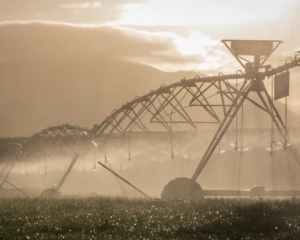
A ban on live animal exports was introduced by the previous government and came into effect in April last year.
The new government intends to lift the ban and has signalled public consultation will start before September this year.
John Beattie runs about 20 Angus heifers on his 19ha block in Karitane, north of Dunedin.
Born and raised on Patearoa Station in Maniototo, he is the last of three generations which have been running the high-country property for more than a century.
He provided merino hogget wethers for live export on a ship departing Timaru for the Middle East for a few years in the 2000s.
"It was a good market for us because it allowed us to keep our merino lambs."
The hoggets were required live so they could be killed and bled as part of a religious tradition, he said.
A lamb, which was born on the high country and weighed 15kg "if you were lucky", fetched "bugger all" at the works, somewhere between $20 and $25.
Keeping the lamb on for live export as a hogget was more lucrative.
"If you kept them for winter and sheared a clip of wool off them and then put them on the boat, you were getting over $100 for them. It was a huge gain on selling a merino lamb."
He believed the final live sheep shipment from Timaru was ewe hoggets to Mexico about 2015.
Union members were protesting the live exports on the wharf in Timaru and the impact it would have on the number of sheep being supplied to meatworks and reduce the work available to its members.
Dock workers, who were union members, refused to load sheep on the ships, he said.
"That’s what killed the market from the east coast of New Zealand."
Back then, animal welfare was never a consideration for banning live exports, but he did think about how his hoggets were killed in the Middle East.

He would support the lifting of a ban on live exports if shipping conditions were to a "Rolls-Royce" standard, giving livestock a certain amount of space and plenty of ventilation on all decks of the vessel.
"There’s no way you can do it Rolls-Royce because you can’t afford to."
New Zealand’s international trade relied on animal welfare standards being maintained to a high level and anything less would damage New Zealand’s reputation.
"A lot of these countries are looking for a reason to put a non-tarriff barrier in."
His view on live exports was shared by many people in the farming community.
"There is a lot of people up the farming chain not too happy about it."
When asked if his view on live exports was due to the opinion of his daughter, Veterinarians for Animal Welfare Aotearoa managing director Dr Helen Beattie, he replied: "We both do our own thing".
Dr Beattie said she was attending her father’s 75th birthday last year and his friends who were "not the most progressive farmers", told her they wanted to talk to her about live exports.
"I thought ‘Oh God, here we go’ expecting to get a telling off. Every single one of them said ‘it is outrageous they are thinking about reinstating this — it is wrong and we should not be doing this’ — I nearly died."
Associate Minister of Agriculture Andrew Hoggard said reinstating livestock exports by sea would require an amendment to the Animal Welfare Act 1999 and for welfare standards to be strengthened before the trade returns to protect New Zealand’s reputation as a responsible exporter and international trade obligations.
“I understand animal welfare is a top priority for all Kiwis. It’s vital, and in fact non-negotiable, that the new standards are in place before the trade is restarted. Hearing a range of voices will help us to understand how we can best achieve this.”
The value of livestock exports by sea was more than $300 million in 2022.
“This is not insignificant. I believe there is an opportunity to expand our live export potential and support the growth of our primary industries and rural communities.”
New Zealand livestock was sought after for breeding and trade supported other countries to reach their food security goals.
“It is valued by our trading partners and gives farmers another revenue source during difficult financial periods, or when weather conditions mean grass production is lower.
“I encourage people to make submissions to make sure all views are taken into account during the policy development process.”
Labour trade spokesman Damien O’Connor said Labour would reinstate a ban on live exports of cattle by sea when re-elected.
“Much of our international trade relies on us maintaining good animal welfare standards. For example, the UK and EU Free Trade Agreements include animal welfare provisions. Restarting live exports could put these agreements and the huge benefit they bring to New Zealand at risk.”
Livestock Exports New Zealand working group chairman Glen Neal, of Wellington, said the industry group was advocating for cows for breeding purposes, mostly dairy, be shipped for live export.
"They are highly valued and fetch a considerable premium."
The group had been working with the Ministry of Primary Industries for the past two years to create high standards for shipping live cows, which he believed would gain the support of the community.
"There will plenty of opportunities for people to have their say."














